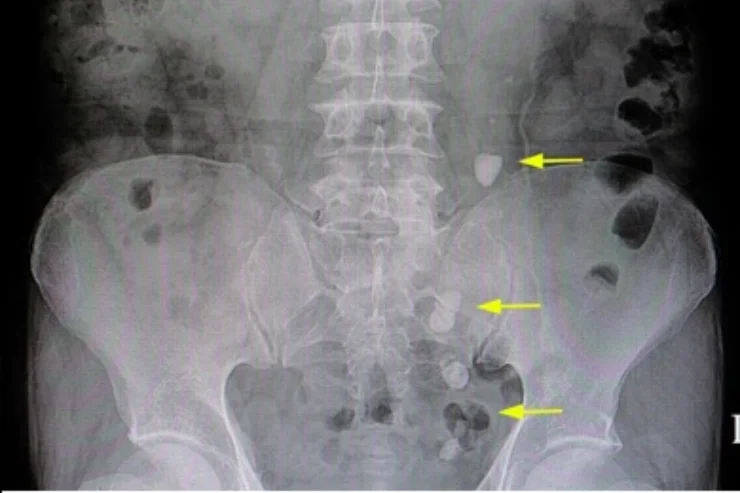Ureteral Stones & Obstructions

What are Ureteral Stones?
Ureteral stones are solid mineral deposits that form in the kidneys and can travel down the ureters, potentially causing blockages and pain.
Causes and Risk Factors
- Dehydration: Lack of fluid intake can lead to concentrated urine, promoting stone formation.
- Diet: High intake of oxalate-rich foods (e.g., spinach) or high sodium can increase stone risk.
- Family History: A genetic predisposition can make individuals more likely to form stones.
- Medical Conditions: Conditions like gout or urinary tract infections can contribute to stone formation.
Symptoms
- Severe Pain: Intense pain in the back, side, or lower abdomen, often described as colicky.
- Hematuria: Blood in the urine, which may appear pink or red.
- Frequent Urination: Increased urgency to urinate or urinary hesitancy.
Diagnosis
Diagnosis typically involves imaging tests (such as CT scans or ultrasounds) alongside urine tests to identify stones and assess kidney function.
Treatment Options
- Hydration: Increased fluid intake to facilitate stone passage.
- Medications: Pain relievers or drugs to help dissolve certain types of stones.
- Surgery: Procedures like ureteroscopy, shock wave lithotripsy, or percutaneous nephrolithotomy may be required for larger or persistent stones.
Conclusion
Ureteral stones can cause significant discomfort and complications. Early diagnosis and appropriate treatment are crucial for management and prevention.
